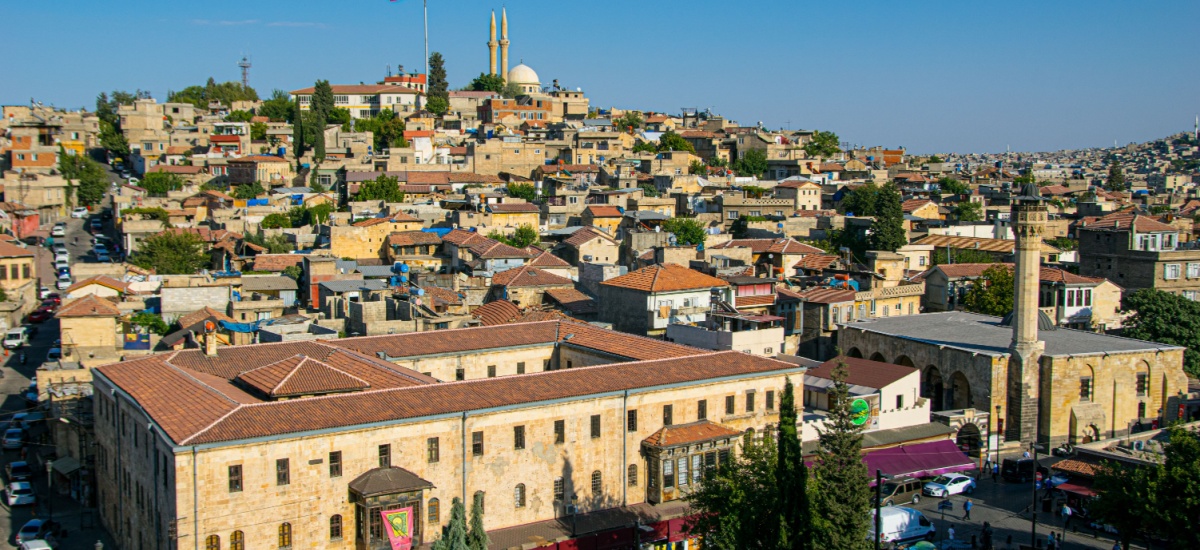What is the 'Nota Simple' in Spain and how do you get one?
Everything you need to know about the Nota Simple in Spain - an essential document for buying property - including how you can get it and how much it costs.

Dreaming of a holiday or retirement home in Turkey? This country boasts glorious weather, lively cities and beautiful coastal resorts. But one of the biggest draws has to be its low property prices compared to other European locations.
In this guide, we’ll run through everything you need to know about buying property in Turkey as a foreigner. This includes steps to purchase a home, info on fees and costs, and the pitfalls to avoid.
And if you’re looking for ways to save money on currency exchange when buying property in Turkey, check out the money services provider Wise. You can send large transfers with Wise for low fees* and mid-market exchange rates - making it ideal if you’re sending a secure international transfer.
The Turkish property market experienced a boom following interest rate cuts, which have driven up house prices in the last few years.This means it's a sellers market and harder now to find a bargain, although housing is still affordable and remains lower than in comparable countries.¹
Reassuringly, the surge in prices has also stabilised and is now increasing at a steadier, more predictable rate.¹
And, although there are some risks such as economic instability, the Turkish economy is projected to grow by 14.7% over the next five years, so it could be a good time to invest in that dream property.² Even so, it’s important to do your research and weigh up the benefits and risks.
You don’t need to be a Turkish citizen or resident to buy property in Turkey.³ However, buying a home in Turkey doesn’t automatically grant the right to live there - foreigners may still need to apply for a visa or resident permit.
There are also a few restrictions foreign buyers need to know about before starting their property search in Turkey:³
With unfamiliar legal processes, buying property abroad will always feel riskier than at home. Turkey’s property market hasn’t always had such a good reputation among foreign buyers, thanks to occasional horror stories of scams and fraud.
But the reassuring news is that following an increase in foreign investment, the Turkish government has tightened controls to protect buyers. This includes implementing new regulations ensuring all listed property ads are verified.⁴
You should still take steps to protect yourself by:
Turkey has a ‘Golden Visa’ scheme which grants citizenship to foreigners when they make a minimum investment.
There are different investment options, one of which is to buy property in Turkey and get citizenship, provided you spend at least $400,000 (or the equivalent in other currencies).⁵
As soon as you’ve bought your home, you’ll get a permanent residence card and can apply for Turkish citizenship right away. You could receive your Turkish passport in as little as 4 months.⁶
Now, how much will a property in Turkey cost you? It largely depends on what you’re buying and where, although generally property prices in Turkey are cheaper than in the UK.
For example, the average price per square metre to buy a city centre apartment in Turkey is around £1,380 GBP.⁷ In the UK, it’s much more at around £4,510 GBP.⁸
Now, let’s take a look at average property prices for apartments in cities and towns in Turkey that are popular with expats:
| Location | Approx price per sq.m - apartment in city centre (EUR) | Approx price per sq.m - apartment outside city centre (EUR) |
|---|---|---|
| Istanbul⁹ | €2,550 | €1,283 |
| Bursa¹⁰ | €1,317 | €918 |
| Izmir¹¹ | €1,497 | €915 |
| Ankara¹² | €1,509 | €1,014 |
| Antalya¹³ | €1,816 | €1,309 |

Turkey has a wealth of sun-drenched coastal resorts, pretty countryside spots and thriving cities to choose from. Your perfect location depends on what you’re looking for - a holiday home, retirement pad or city centre bolthole.
Let’s run through just a few of the most popular cities and resorts in Turkey amongst foreign buyers.
- Istanbul - this vibrant metropolis is a popular spot with foreigners for new homes and investment property. It’s well-connected and bursting with food, culture and history, although fairly expensive.
- Antalya - another popular pick for foreign property buyers is Antalya. It has a large expat population and attracts lots of tourists, so could be a good choice for holiday lets.
- Fethiye - has a thriving British expat community. Fethiye offers beautiful coastal landscapes, excellent beaches, great amenities and a taste of traditional Turkish life.
- Bodrum - fashionable Bodrum on the southwestern coast of Turkey is ideal for those looking for luxury, although it also has its share of quaint fishing villages. Head to Gumbet and Guluk on the peninsula, or Bodrum town for the most affordable prices.
- Bursa - is just an hour’s drive from Istanbul. Along with cheap property, the city boasts fascinating historic sites, magnificent mountains, green parks and thermal baths.
- Ankara - if you’re after city living but find Istanbul property too expensive, Ankara could be a good alternative. Turkey’s capital has all the shops, restaurants and attractions you could want, and it’s great for working expats and international business owners.
- Izmir - Offering an attractive blend of culture, history and scenic beauty spots, Izmir is another popular option. Although it has seen a recent surge in property prices, it’s still cheaper than Istanbul and its coastal views make it a stunning choice of location.
If you’re not yet living in Turkey and are unfamiliar with the market, it is advisable to use an English-speaking estate agent. They can help you navigate the process.
You should always do your research on any estate agent, looking into their experience in international sales, credentials and qualifications. In Turkey, estate agents are now required by law to have a certificate from the Vocational Qualification Authority.¹⁴
To find a trusted property agent, start by looking at locations and properties yourself to narrow down your search area. Then you can research agents operating there.
To start your property search you can use these popular real estate websites which list properties for sale in Turkey:
Here are just a few things to look out for when buying property in Turkey:

Turkey’s architecture reflects the country’s fascinating mix of East and West. This means you’ll find everything from magnificent Ottoman townhouses to modern, European-style coastal villas.
Property styles vary regionally, with more timber-built houses in the north, while homes in the west and south tend to be made of stone.
Apartments are the most common property type in Turkish cities, and the most popular option for foreign buyers. What you choose will depend on your preferences and budget.
Turkey brought in new laws in 2019 requiring all foreign nationals buying or selling property in the country to get an expert surveyors’ report on the condition of the property.¹⁶ You’ll need to find a certified surveyor to do this.
This is not only necessary for the land registry to approve the transaction, but it can also help you assess the condition of the property before buying.
Let’s run through the process of buying a home in Turkey:¹⁷
Here are some of the key legal details to note before buying property in Turkey, which your solicitor should handle for you:
If you need a mortgage to finance your Turkish property purchase, there are a few options available. Turkish banks do offer mortgages to foreign applicants.¹⁹
Typically, lenders will offer a 70% loan-to-value (LTV) to foreign applicants, and some have a minimum loan size of around €67,500.¹⁹
Be aware that lenders will often insist on carrying out their own property valuation, and this can come in around 10-15% below market price.¹⁹ You’ll need to take this into account and make sure you can cover the shortfall on the valuation.
Here’s a quick look at the process of getting a mortgage in Turkey:¹⁹
Costs can vary between the different regions of Turkey, but here’s a rough idea of the main taxes and fees involved:²⁰
| Cost Type | Fee | Notes |
|---|---|---|
| Estate agent fees¹⁸ | Approx 3% of the property value | You’re free to negotiate this fee |
| Property Purchase Tax (Stamp Duty) | 4% of the property value | |
| Legal fees | Approx 1-3% of the property value | Can vary according to complexity of sale and lawyers experience |
| Notary fees | From €200 to €300 | |
| Property Valuation Report | From €200 to €300 | |
| DASK (Earthquake Insurance) | Annual premiums typically range from €30 to €100. | Ongoing cost - price dependent on property size and location |
If you’re buying a Turkish property from the UK, you’ll need to find a safe, cost-effective way to transfer money internationally. Whether you’re paying a deposit or your solicitor’s fees, you’ll want to avoid losing money to poor exchange rates and high bank fees.
Wise offers a convenient solution for international property buyers. Open a Wise account and you can send money from the UK to Turkey for low fees* and the mid-market exchange rate.
Here are the main benefits for using Wise: |
|---|
|
Sources used for this article:
Sources checked on 16-Sep-2025.
*Please see terms of use and product availability for your region or visit Wise fees and pricing for the most up to date pricing and fee information.
This publication is provided for general information purposes and does not constitute legal, tax or other professional advice from Wise Payments Limited or its subsidiaries and its affiliates, and it is not intended as a substitute for obtaining advice from a financial advisor or any other professional.
We make no representations, warranties or guarantees, whether expressed or implied, that the content in the publication is accurate, complete or up to date.

Everything you need to know about the Nota Simple in Spain - an essential document for buying property - including how you can get it and how much it costs.

Read our guide on how to transfer money to buy property overseas, including all of the best options for UK residents and steps to set up a large transfer.

Read our guide on how to transfer money to buy property in Spain, including all of the best options for UK residents and steps to set up a transfer.

Read our complete guide to selling your property in Barbados, including info on the process, fees, taxes, legal requirements and more.

Read our comprehensive guide to getting a mortgage in Turkey from the UK, covering everything you need to know.

Read our essential guide to property tax in Turkey for foreigners and UK expats, including taxes on buying, selling and renting out property.